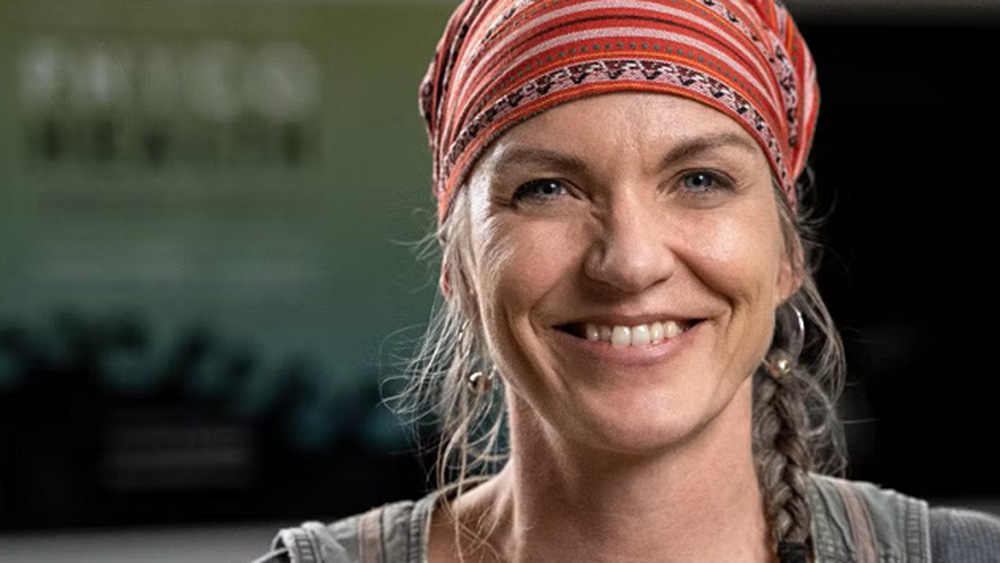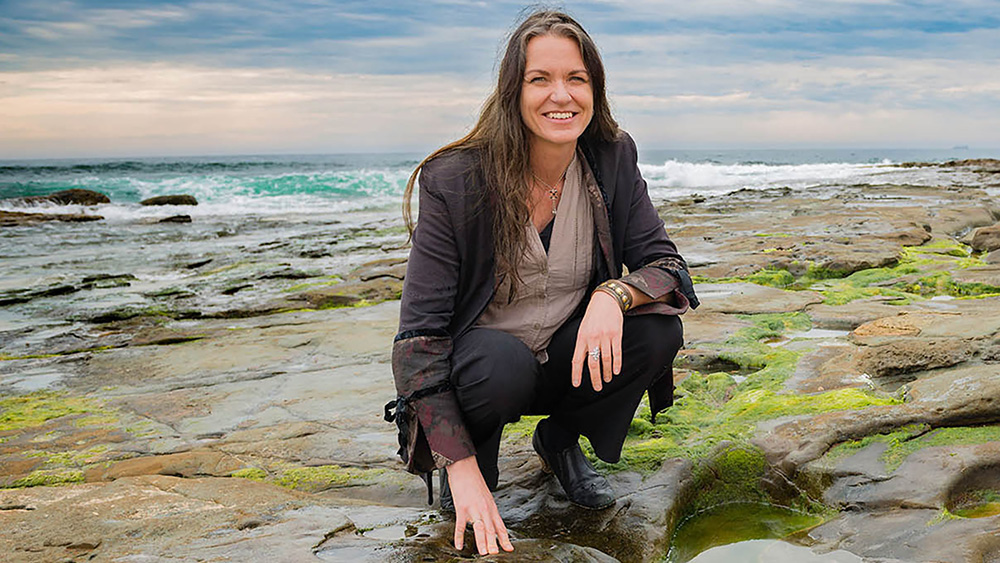Finding beauty in seaweed and sustainability
Venus Shell Systems CEO and UOW graduate, Dr Pia Winberg is seeing green with "the crop of Australia's future".
October 22, 2024
“You’ve got to create solutions that work,” says Dr Pia Winberg, a celebrated marine ecologist, entrepreneur and graduate of the 51²è¹Ý (UOW). Her focus on seaweed and microalgae is not just about products but a mission to address global sustainability challenges.
Breaking convention
Dr Pia Winberg has never been one to follow the conventional path, and her journey from to entrepreneurial success is proof of that.
A graduate of UOW, she turned her scientific expertise into a flourishing business for the production of seaweed, opening Venus Shell Systems in Huskisson on the New South Wales south coast in 2015.
As Director and Chief Scientist, Dr Winberg’s work in pioneering seaweed biomass and extracts development is revolutionising both the beauty and sustainability sectors.
“I’ve always believed that science needs to impact people in the real world,” Dr Winberg says.
With a background of more than 25 years spanning academia and the marine industry, Dr Winberg recalls feeling that her true purpose was outside a conventional lab setting from early on.
“Sitting in an ivory tower didn’t feel meaningful to me; I wanted to be hands-on, making a difference,” she continues.
Seaweed and sustainability
For Dr Winberg, seaweed is a critical part of the solution to both environmental and health crises.
“We’ve shown that seaweed can be used to clean up waste from food manufacturing,” she explains, highlighting the regenerative potential of seaweed farms.
According to Dr Winberg, the seaweed her company cultivates helps tackle nitrogen pollution, a key concern in Australia’s agricultural sectors.
Beyond that, she emphasises the nutritional value of seaweed, pointing out how it can help solve global deficiencies like iron, particularly for women.
“Iron deficiency is still the leading cause of maternal deaths globally,” Dr Winberg claims, positioning seaweed as an accessible solution to this problem.
Her studies have elevated the nutritional perception of seaweed from green to gold standard as we learn its potency in treating a multitude of health issues, including inflammation, trace element deficiency and poor gut health.

Defining a business model
Through , Dr Winberg already developed the farming of Australian, ulvan-rich seaweed using carbon dioxide produced as a by-product from the brewery industry.
She also built the the technology to farm it sustainability, while repurposing carbon dioxide and nitrogen industry spill-off in the process.
But Dr Winberg isn't the type to tread water.
To fully realise and deliver the benefits of seaweed direct to consumer, Dr Winberg founded , her seaweed-based skincare and lifestyle range, a direct outcome of her scientific work.
From ‘’ made with 10 per cent Australian farmed seaweed to the cleverly-marketed ‘’ corn chips fortified with seaweed, the Phyco Health range also includes supplements and skincare sold direct to consumers.
“I never set out to have a ‘brand’ and I sell direct to customers. But it was out of necessity because I [had] the seaweed, I was going grow to save the world, but no one knew what to do with it,” she recalls.
“I thought, ‘ah we’ll have to show them’. So, I began making pasta on the lab bench, and my daughters started inventing foods and I love how it got started like that.”
One of Dr Winberg's major breakthroughs led her to develop and trademark , a world-first, plant-based alternative to hyaluronic acid, the anti-aging molecule celebrated in the beauty industry.
“We’re not saying that we are curing cancer,” Dr Winberg says as she downplays the discovery. “But we have the science down to the molecular structure so we can actually make some pretty high statements about this molecule like how it can hold 2,000 times its weight in water.”
Through her research venture, , Dr Winberg is developing and applying the benefits of phyaluronic acid into a skincare range encompassing facial wash, daily moisturiser, clay mask and a facial scrub. All products are sustainably made in Australia.
“We are creating value from what would otherwise be waste,” she says.

Finding a deeper purpose
Success is helping drive forward Dr Winberg’s work in sustainable and low emission food production in coastal zones, and she has learned many lessons along the way.
“As a scientist, you just don’t think about setting up a business, and I definitely didn’t see myself as a good business leader,” she admits.
“But at the end of the day, everyone is insecure, so you just have to trust yourself and not be afraid to fail.”
Instead of fearing the competitive nature of business, Dr Winberg has learned to embrace collaboration.
“There are certain things you don't go and tell everyone about – the things that took blood, sweat, and tears to work out,” she says.
“But generally, it's better to collaborate than to just keep everything to yourself,” adding, “...and I truly believe women are good at that.”